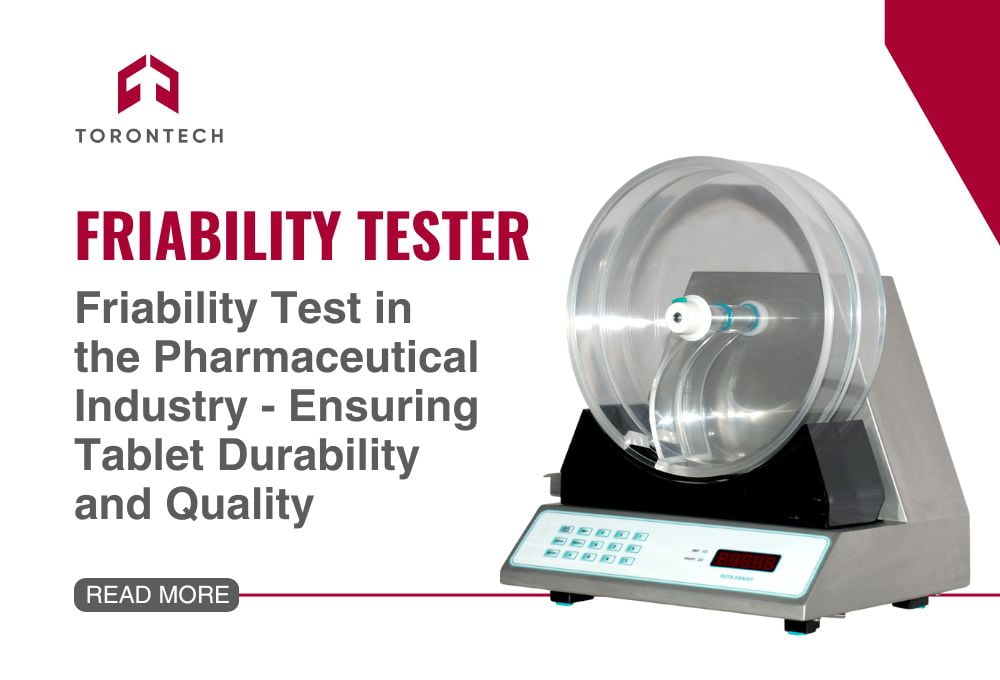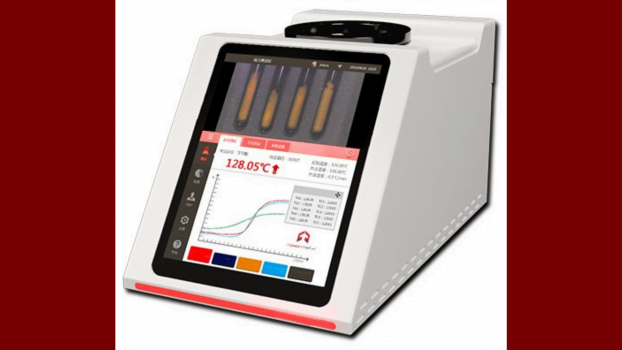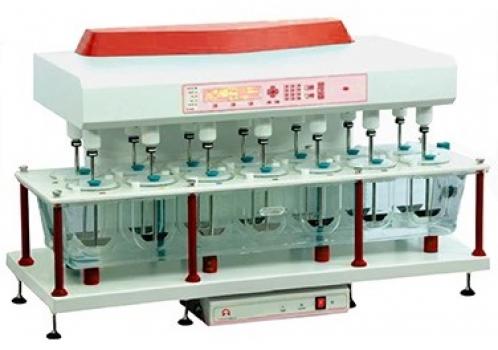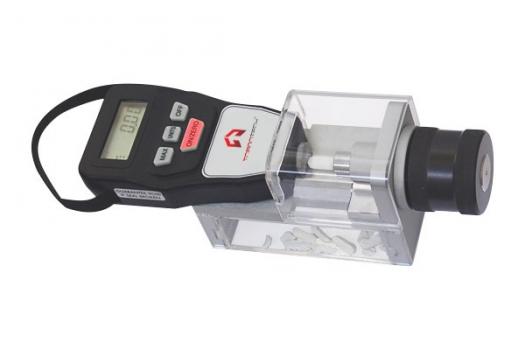In the pharmaceutical industry, the quality and durability of tablets are paramount to ensuring their safety and efficacy. A crucial aspect of quality control is the Friability Test, a procedure designed to assess the durability of tablets and granules under mechanical stress.
This test is a critical component in the development and manufacturing of pharmaceutical products, as it helps to determine the ability of a tablet to withstand the rigors of handling, packaging, and transportation. By understanding the Friability Test and its implications, manufacturers can develop robust, high-quality products that meet the stringent requirements of the industry and, ultimately, improve patient outcomes.
In this blog post, we will explore the Friability Test in detail, providing you with a comprehensive understanding of its fundamentals, principles, also advantages in the pharmaceutical industry.
What is a Friability Test?
A friability test is a laboratory technique that has the purpose of evaluating the physical strength and durability of compressed and uncoated tablets upon exposure to mechanical shock and attrition. In simple words, the friability test tells how much mechanical stress tablets can withstand during their manufacturing, packaging, shipping processes, distribution, and handling by the customer.
Throughout the pharmaceutical industry, friability testing has become an accepted technology and the instrument used to perform this process is called Friabilator or Friability Tester. The mechanical strength of tablets or granules can be determined by their hardness and through this test.
Understanding Friability Test Equipment
Friability test equipment, also known as friability test apparatus, is designed to conduct friability testing. The equipment is used to assess the tendency of tablets to break apart or crumble under friction, pressure, or vibration, which is known as friability.
The test is typically performed using a friabilator, which is a specialized apparatus designed to tumble the tablets at a controlled speed and angle. These are some key features of the apparatus.
- Plastic Chambers: This instrument consists of a plastic chamber for placing the tablets which is attached to a horizontal axis.
- Rotating Drums: The equipment typically consists of one or two transparent acrylic drums that rotate at a controlled speed, usually 25 rpm. The drums are designed to tumble the tablets and are made of a transparent synthetic polymer with a polished internal surface. This simulates the mechanical forces that tablets may encounter during manufacturing, packaging, and handling.
- Tablet Handling: Each drum is equipped with an arm that carries the tablets along with it up to a predetermined height and allows them to fall from that specified height while the drums are rotating. This simulates the mechanical stress that tablets may experience during handling and transportation.
- Digital Counter: The equipment is often fitted with a digital revolution counter that displays the current number of revolutions for the test. A thumb-wheel switch is used to set the desired number of rotations.
The friability test machines are used in various settings, including pharmaceutical laboratories, research institutions, and quality control departments. They help ensure the quality and consistency of tablets by identifying any potential issues with their physical strength and durability.
This helps prevent problems during manufacturing, packaging, shipping processes, distribution, and handling ultimately benefiting patients by ensuring accurate and effective medication.
Friability Tester Principle
The principle of a friability tester involves placing tablets in a rotating drum and measuring the weight loss due to chipping or breaking under friction, pressure, or vibration. The majority of the tests use the Roche Friabilator principle.
This method subjects several tablets to abrasion and shock by utilizing a plastic chamber that revolves at 25 rpm, dropping the tablets a distance of 6 inches with each revolution. After a given number of rotations, the tablets are weighed and the loss in weight indicates the ability of the tablets to withstand this type of wear.
This is the main step of the friability test procedure you must know.
1. Sample Placement
A set of pre-weighed tablets is placed in the plastic chamber. Ensure that the tablets are uniform in size and weight, and have been stored under the same conditions to minimize variability.
2. Rotating Drum or Friabilator Setup
Place the tablets in the friability testing apparatus (rotating drum or friabilator) and ensure that the drum is level and rotating smoothly. The USP recommends a rotating speed of 25 revolutions per minute (rpm) for the friabilator.
3. Test Duration and Rotations
Test the tablets for a specified duration or number of rotations. The USP recommends a minimum of 4 minutes (100 revolutions) for most tablets, but this may vary based on the product’s intended use and formulation.
4. Weight Loss Calculation
The tablets are weighed before and after the test to determine any weight loss due to mechanical stress. The weight loss is calculated as a percentage with friability test formula such as below:
![]()
5. Check Acceptance Criteria
Acceptable friability is generally considered to be less than 0.5% to 1% weight loss. This ensures that tablets can withstand forces during manufacturing, distribution, and handling by customers.
Generally, the test is run once. If cracked cleaved or broken tablets are present in the tablet sample after thumbing, the sample fails the test. If the results are doubtful or if the weight loss is greater than the targeted value, the test should be repeated twice, and the mean of the three tests is determined so the result should be less than 1% of weight loss is considered acceptable for most products.
Friability testers are available in different configurations, such as single-drum and dual-drum models. Some models can handle multiple sample types at once and have pre-programmed test algorithms for commonly assessed medications or substances. Automated friability testers can perform tests automatically, including setting test parameters, running the test, and printing out results.
Factors Affecting Friability Test Results
Various factors can impact the friability test results, affecting the tablet’s ability to maintain its structural integrity under mechanical stress. Understanding these factors can help manufacturers optimize their formulation and manufacturing processes, ensuring the production of high-quality, durable tablets. These are some key factors that influence the Friability Test results.
1. Tablet Composition and Formulation
The composition and formulation of the tablet can significantly affect its friability. Factors such as the type and quantity of active ingredients, excipients, and binder materials can impact the tablet’s strength and durability.
2. Coating and Binding Agents
The choice and application of coating and binding agents can affect the tablet’s friability. For example, using a higher concentration of binder material can improve the tablet’s strength and reduce its friability.
3. Moisture Content
The friability test may also be influenced by the moisture content of the tablet’s granulation in the finished tablets. A low but acceptable moisture level frequently serves to act as a binder. Very dry granulations that contain only fractional percentages of moisture will often produce more friable tablets than will granules containing 2 to 4 % moisture.
4. Manufacturing Processes
The manufacturing processes, including compression force, tablet size, and shape, can impact the tablet’s friability. Ensuring consistent and controlled manufacturing processes can help minimize variability in the Friability Test results.
5. Storage and Transportation Conditions
Exposure to extreme temperatures, humidity, and vibration during transportation and storage can negatively affect the tablet’s friability. Proper packaging and storage can help maintain the tablet’s structural integrity and minimize the impact of these external factors.
By acknowledging and addressing these factors, you can optimize tablet formulations and manufacturing processes to produce high-quality, durable products that meet regulatory requirements and maintain their intended therapeutic effect.
Advantages and Limitations of Friability Testers
Friability testers are essential tools for ensuring the quality and durability of pharmaceutical tablets and granules. While these devices offer numerous advantages, they also have certain limitations. Understanding these advantages and limitations can help you optimize their use of friability testers in their quality control processes.
A. Advantages of Friability Testers
- Standardized Test Method: Friability testers provide a standardized testing method that is widely accepted and used across the pharmaceutical industry. This ensures that manufacturers can compare their results with industry norms and regulatory requirements.
- Replicable and Reliable Results: These testers produce consistent and accurate results, allowing manufacturers to evaluate the durability of their tablets and granules under controlled conditions.
- Fast and Efficient Testing: The Friability Test is a relatively quick process, allowing manufacturers to evaluate the quality of their tablets and granules promptly. This enables manufacturers to identify and address potential issues in their formulation and manufacturing processes.
- Compliance with Regulatory Guidelines: Friability tests help manufacturers comply with regulatory requirements, ensuring that their products meet the industry’s strict safety and efficacy standards.
- Early Detection of Issues: The Friability Test can identify potential problems with tablet durability early in the development and manufacturing process. This allows for corrective actions to be taken before large-scale production, minimizing waste and reducing the risk of product failure.
- Cost-Effective: Friability testers are a relatively affordable investment for manufacturers, providing a cost-effective solution for ensuring the quality and durability of their tablets and granules.
B. Limitations of Friability Testers
- Limited Scope: Friability testers primarily evaluate the tablet’s ability to withstand mechanical stress during handling and transportation. They do not provide insights into other critical aspects, such as the tablet’s disintegration, dissolution, or drug release properties.
- Not Suitable for All Tablet Types: Friability tests may not be suitable for all types of tablets, such as coated or enteric-coated tablets. These tablets may require alternative testing methods to properly assess their durability and performance.
- Limited to Specific Conditions: Friability testers assess the tablet’s durability under controlled conditions, which may not accurately reflect the tablet’s performance in real-world situations.
Despite these limitations, friability testers remain an essential tool in the pharmaceutical industry for evaluating the durability and quality of tablets and granules.
Conclusion
Understanding the Friability Test is crucial for pharmaceutical manufacturers as it assesses the durability and quality of tablets and granules. This test provides valuable insights into the mechanical strength and resilience of drug products, making it a cornerstone of quality assurance.
When manufacturers follow best practices and continually refine their testing procedures, they can create tablets and granules that endure the challenges of handling, packaging, and distribution, guaranteeing that patients receive safe and effective medication.
Visit our website to learn more about the range product of Friability Tester. Or contact us for personalized guidance in selecting the right solution for your needs.
In addition to the Friability Tester, ensuring comprehensive quality control in pharmaceutical manufacturing involves the use of various specialized instruments. Tablet Hardness Testers measure the mechanical strength of tablets, helping to prevent breakage during handling and packaging.
Leak Testers play a critical role in verifying the integrity of packaging, safeguarding against contamination. Furthermore, Tap Density Testers provide precise measurement of powder and granule density, essential for consistent tablet formulation.
Explore our full range of Pharmaceutical Testing Equipment to ensure your products meet the highest standards of quality and safety.
References:
- Mohammad Saleem et al. (2014). Evaluation of Tablets by Friability Apparatus. International Journal Of Research In Pharmacy And Chemistry.
- M U H Suzihaque et al. (2017). A study on friability, hardness and fiber content analysis of fiber enriched milk tablet. IOP Conf. Ser.: Mater. Sci. Eng. 206 012038
- Kumar, Davinder & Singh, Jasbir & Antil, Mamta & Kumar, Virender. (2016). Quality Control Of Tablets: A Review. International Journal Of Universal Pharmacy And Bio Sciences Impact Factor 2.96 Icv 5.13.








